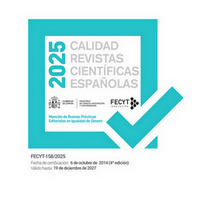Languages and nations in the Second Republic Constituent Assembly: The Castilian point of view
Keywords:
Second Republic, Constitution of 1931, language, nationalims, castileAbstract
As it is assimilated to democratic pluralism, the political recognition of the Spanish cultural and linguistic plurality is one of the issues which were to be solved by the 1931 Spanish Republican breaking off. The approval of the autonomous status of Catalonia, known under the name of ‘Estatut de Núria’, established the sovereignty of the Catalan people on July 14th 1931, the very same day the inaugural session of the constituent Assembly took place in Madrid; it gave a decisive slant to the elaboration of the project for a Republican constitution and dictated the paradoxical imperative of writing the Castilian language as the official language of the Republic into the Constitution, when it had been considered as such for centuries, in order to respond to the challenge of Catalan separatism.
The perspective usually adopted for the linguistic issue is that of the periphery since language is perceived as an essential element of what is known as “the differential fact”, which is more specifically mentioned in the case of Catalonia. By taking the opposite point of view, from the centre, this study aims at analyzing in what way the constitutional debates brought about a redefinition of the Castilian language in its singularity and its differences, as a vehicle for influence and modernity.
Downloads
Downloads
Published
Issue
Section
License
All the articles published in Investigaciones Históricas, época moderna y contemporánea will have a Creative Commons Attribution 4.0 International License (CC BY 4.0).
The journal allows the authors to retain publishing rights. Authors may reprint their articles in other media without having to request authorization, provided they indicate that the article was originally published in the journal Investigaciones Históricas, época moderna y contemporánea.



